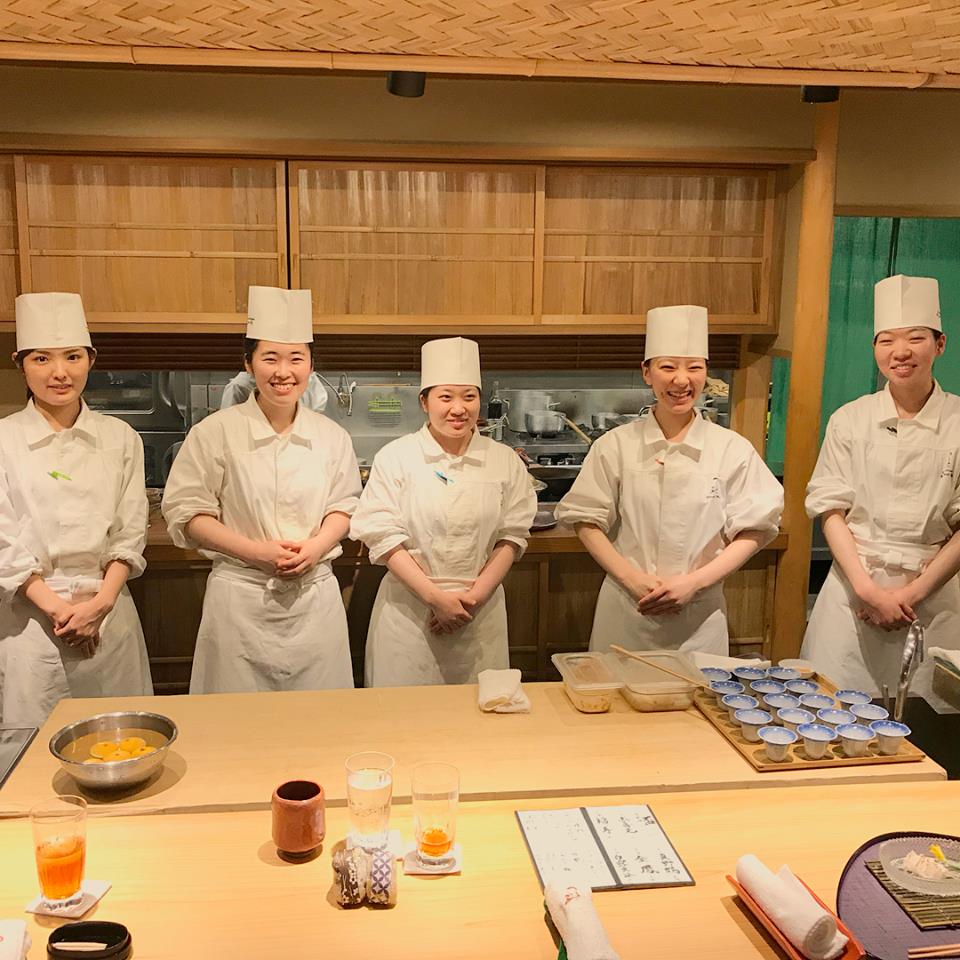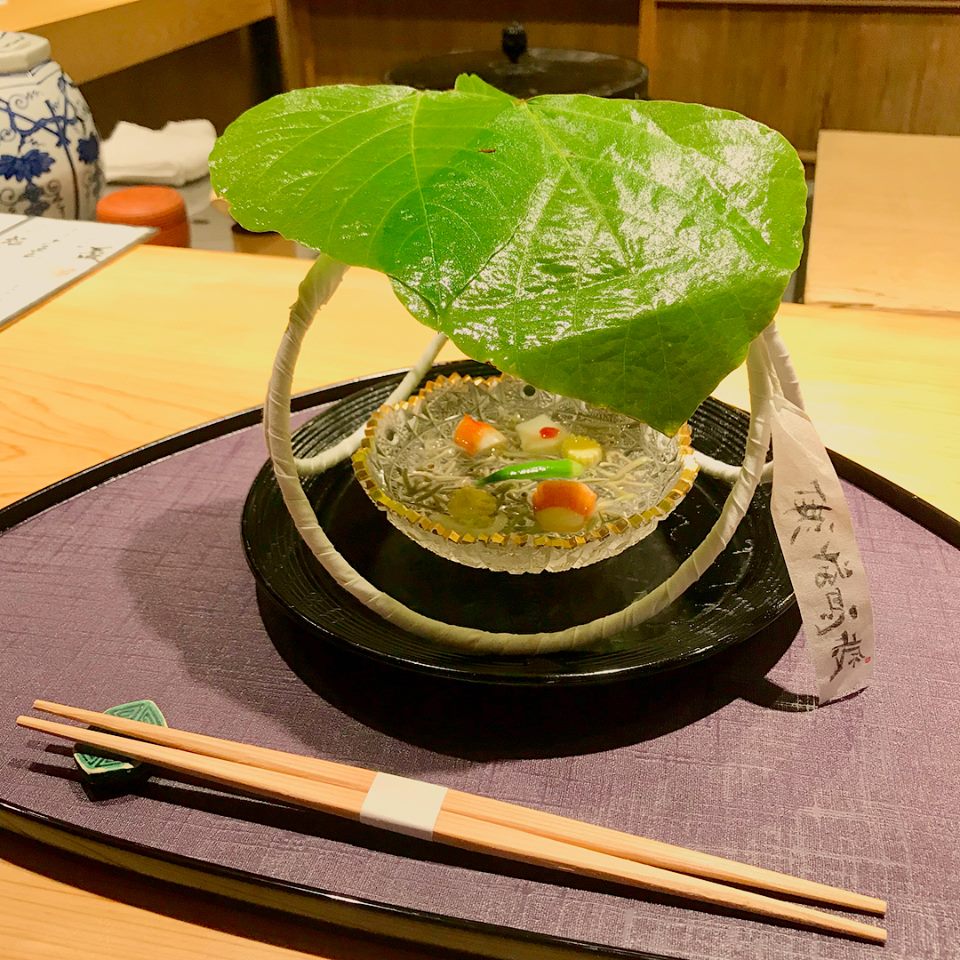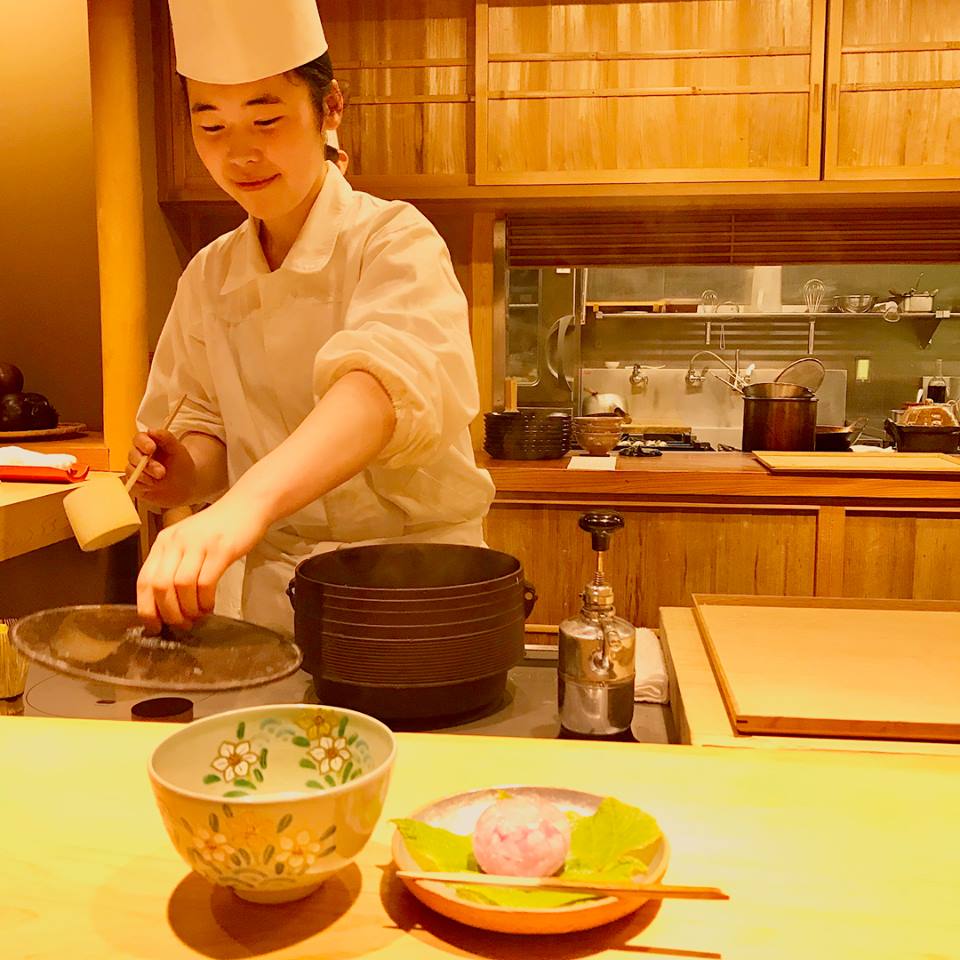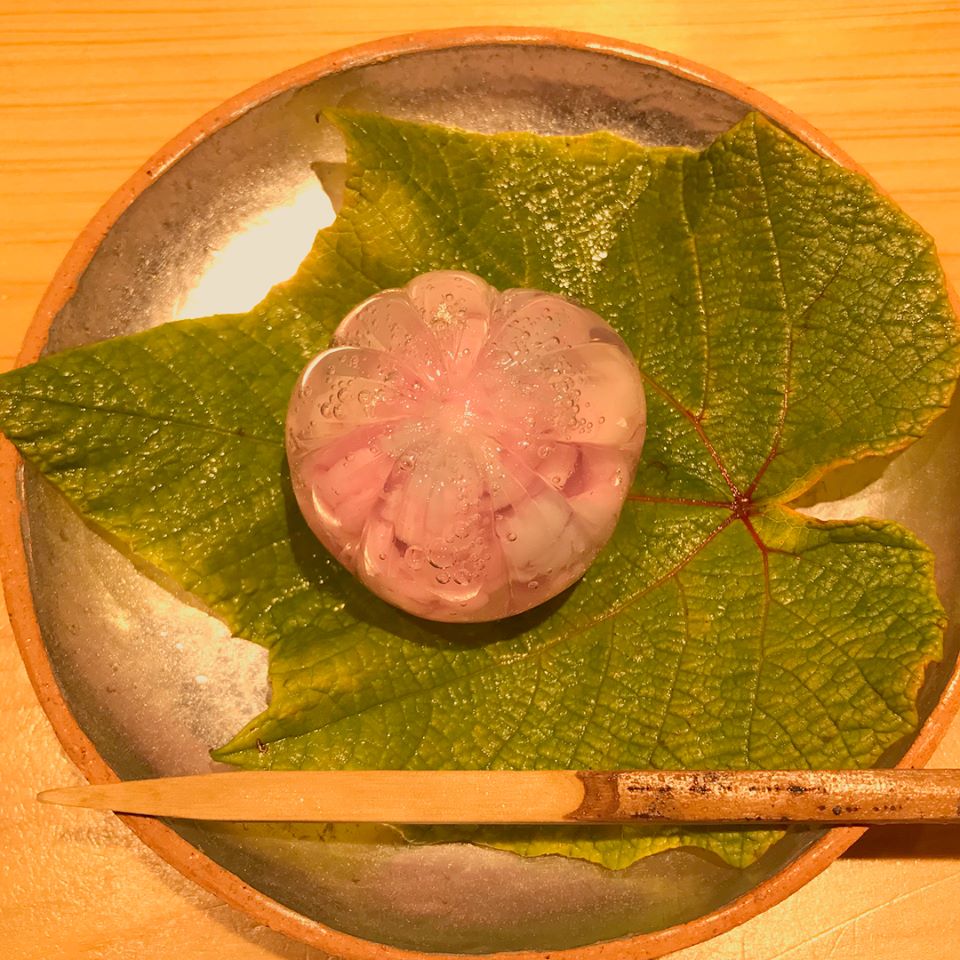Women Leaders In Culinary Roles At Tokyo's Tsurutokame Restaurant
It's easy to walk along Namiki-dori, in the quiet Ginza neighborhood of Tokyo, without even knowing that a new restaurant sits in the basement of the Iwatsuki Building, across from the modern Hyatt Centric Ginza Tokyo. Tsurutokame Restaurant doesn't have large ads displayed in the train stations or on the Internet. There are no large neon signs on the street, alerting pedestrians to its existence. You will only see a small paper lantern, illuminating the way to what lies below.
Tsurutokame is not like any other restaurant—it is a word-of-mouth surprising standout because something different and somewhat risky is happening here: seven women are at the helm in leadership chef roles, running this restaurant and creating the unique dishes. In traditional Japanese culture, it is uncommon to see women in prominent leading roles and at Tsurutokame, all of the chefs are women—all.
"The restaurant opened to give women an opportunity to have success as a chef, which is very difficult in Japan because of the culture," says Mrs. Harumi Mikuni, owner of Tsurutokame alongside her husband Mr. Osamu Mikuni. "The women work twice as hard as men to prove that they are just as good or better."
The women here operate under an apprenticeship, some as young as 16, working long and hard hours to perfect their craft. They live together in dorms, as part of their training, to build comradery and teamwork and learn how to respect others. To deepen their knowledge in the art of cuisine, the women are educated in cultural and artistic studies such as: haiku, flower arranging, singing, calligraphy, tea ceremonies and English education. On Sundays, the women go to ballets, museums, and opera to influence their work in the gastronomic space. The young women start with basic training in the central kitchen to learn knife skills before moving to the counter at the restaurant.
"Many chefs from other sushi restaurants throughout Tokyo and the surrounding areas visit here to see how we do things," says Mrs. Harumi.
The early morning starts at the famous Tsukiji Market, at a specific vendor, to hand select the finest fresh fish and then the work begins on developing the multi-course menu, which changes monthly, and is dependent on what fresh fish is available that day. The plates and glasses also change with the seasons and are often inspired by the flowers that are in bloom.
"The ultimate goal is to spread Japanese cuisine and also to inspire the women to start restaurants of their own in the future," says Mrs. Harumi. "Instead of men always teaching women, which is how things are in Japanese culture, I want women to be able to teach the men. I want to put skillful women in power and make women's position in this world higher."
Meal was provided by Tsurutokame Restaurant.




